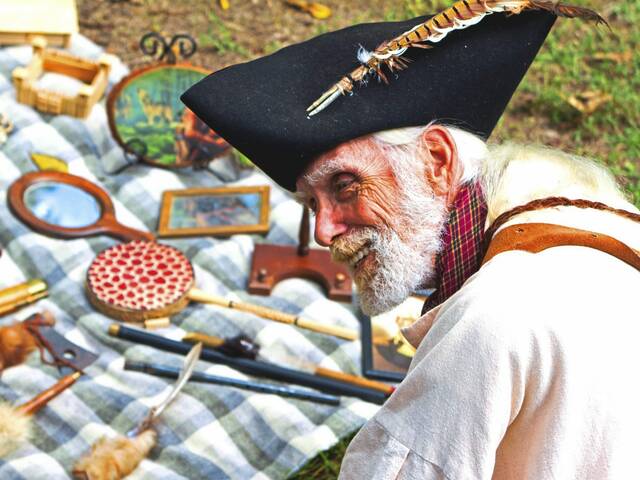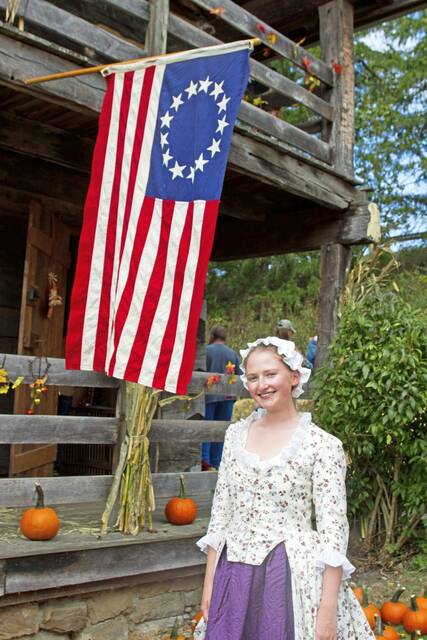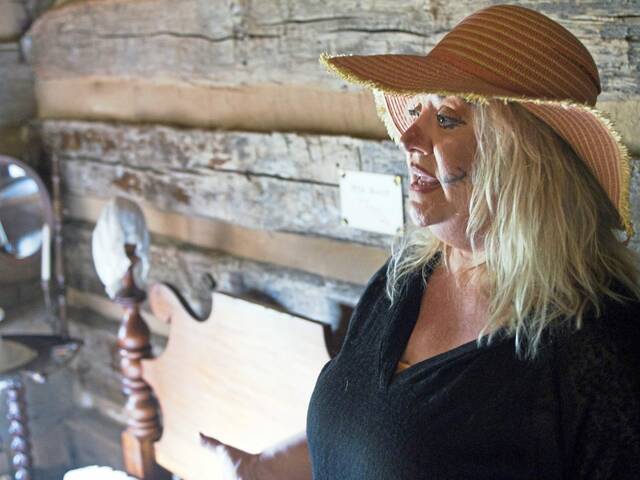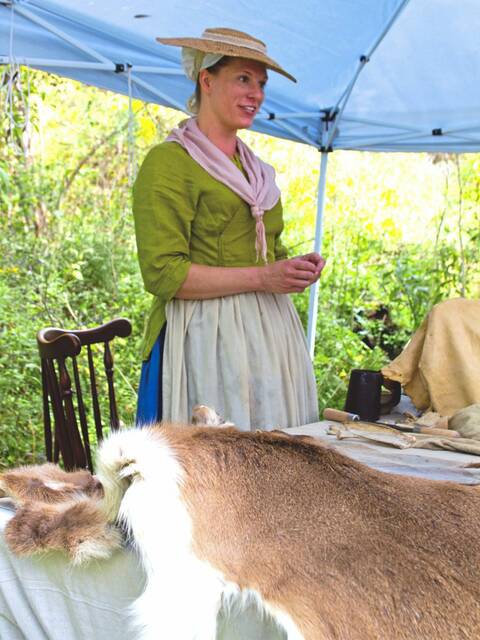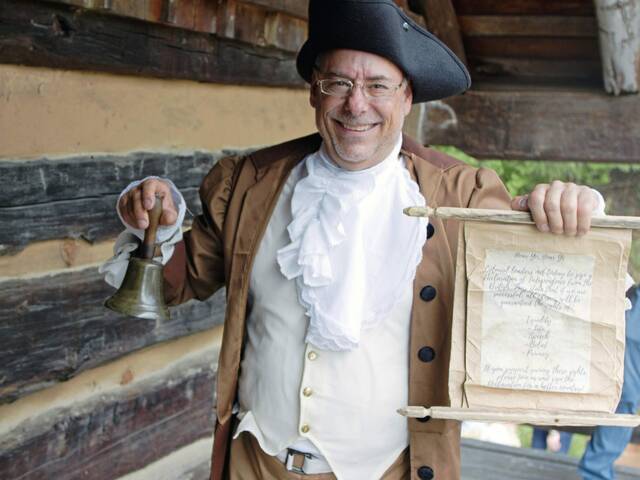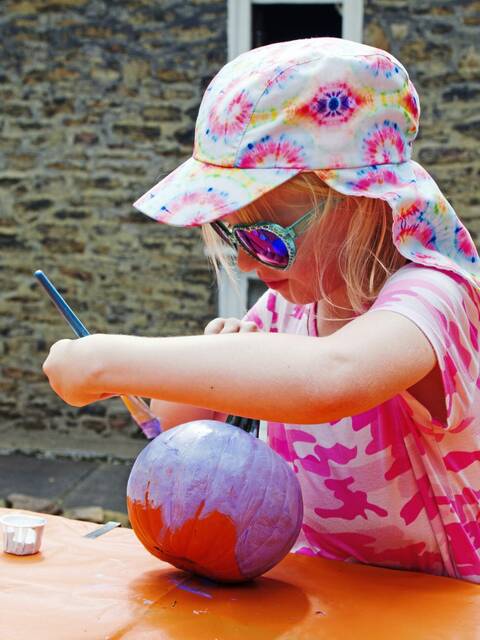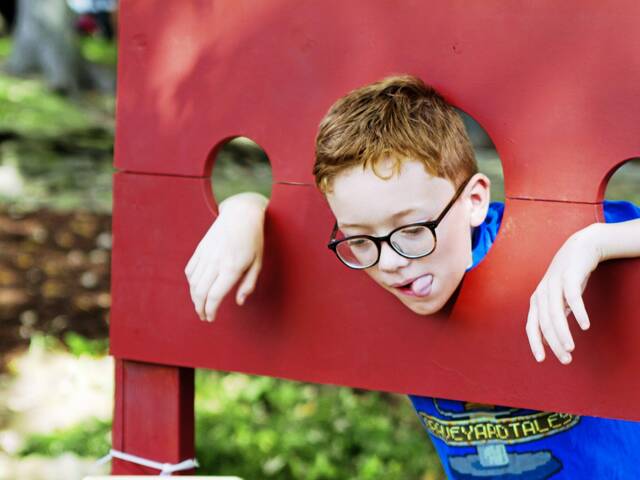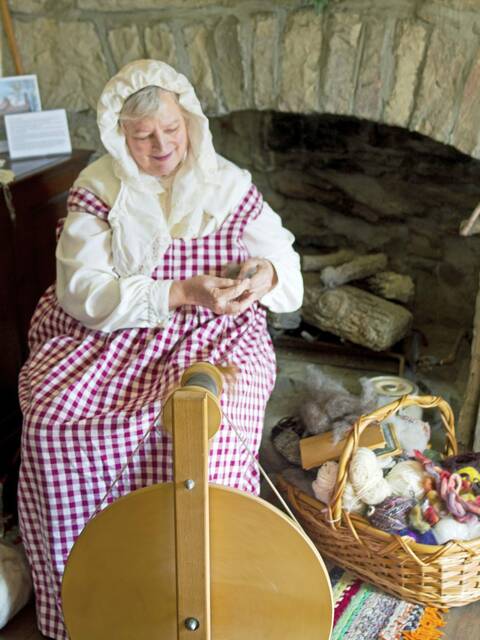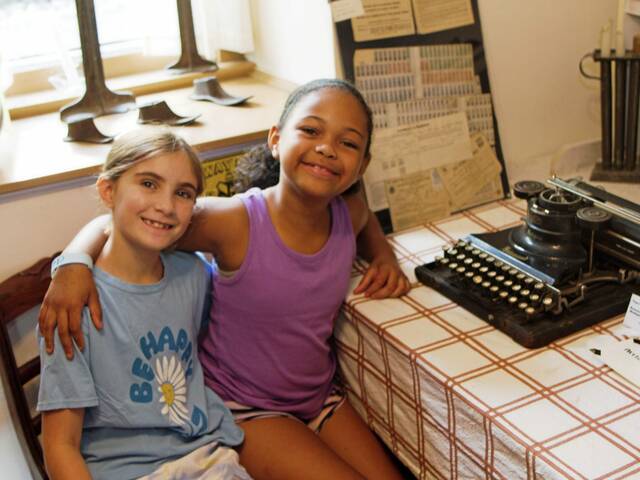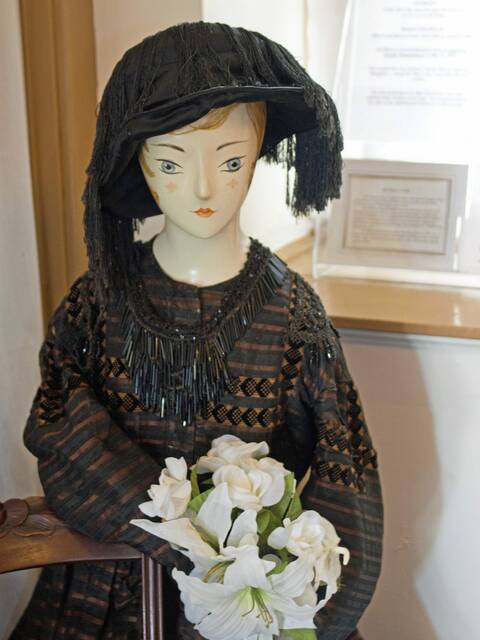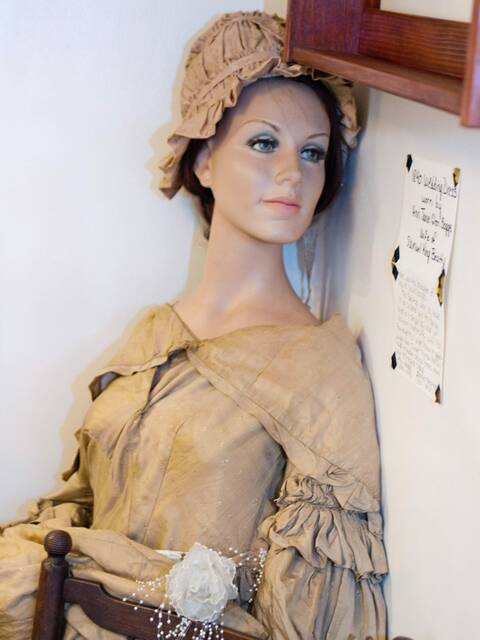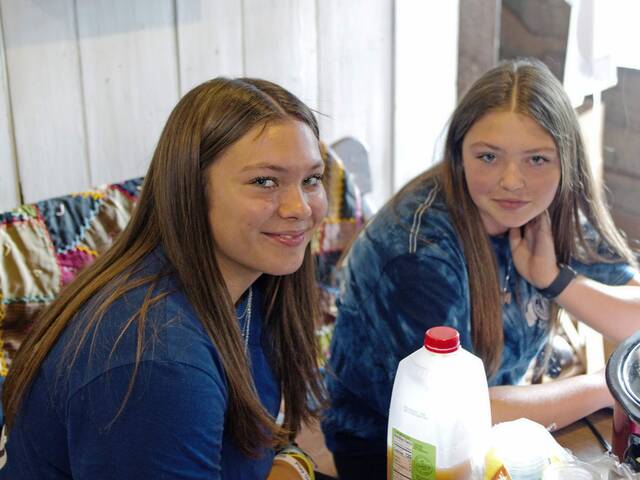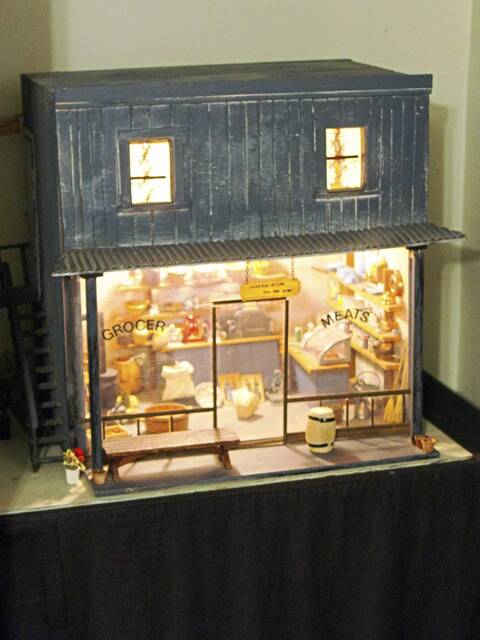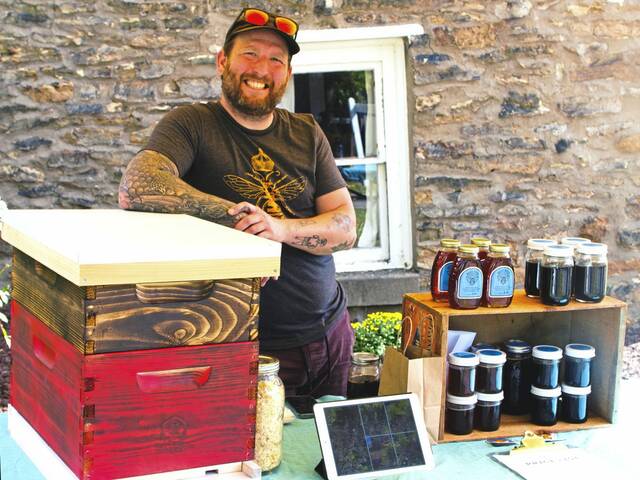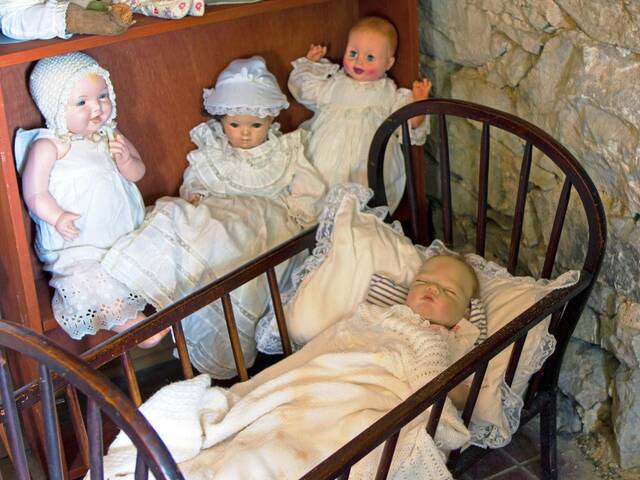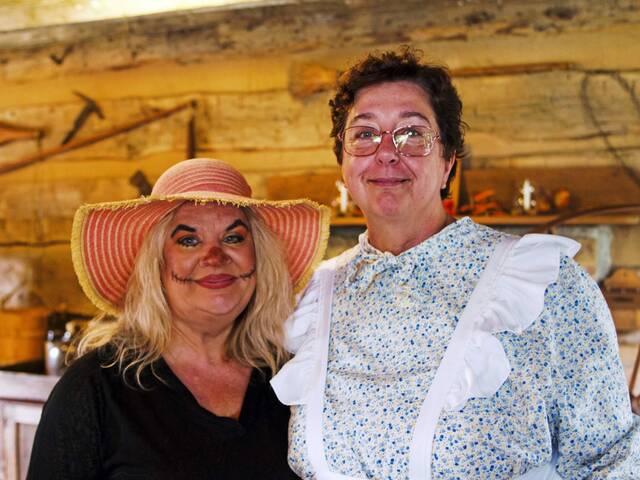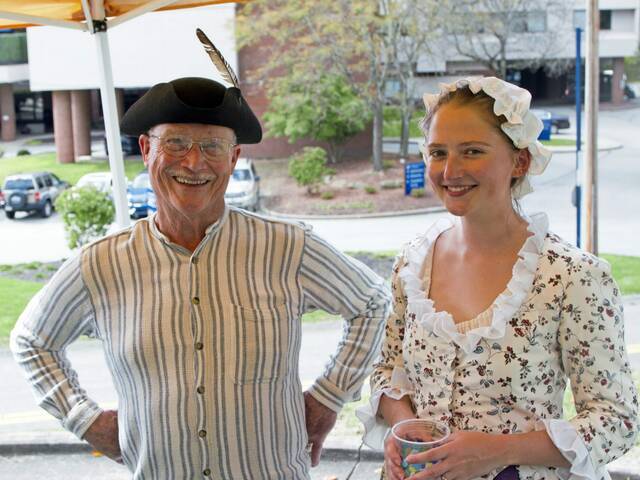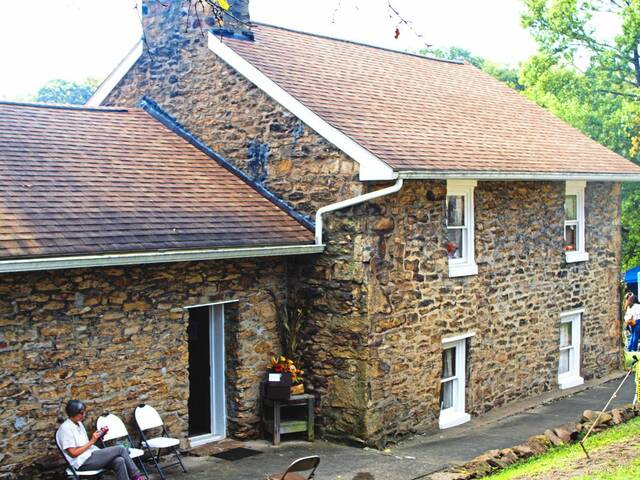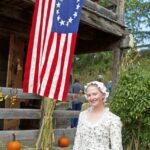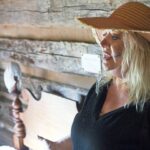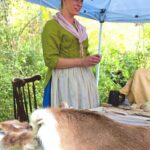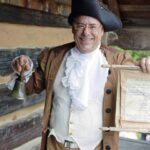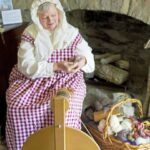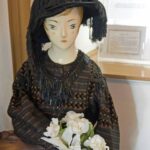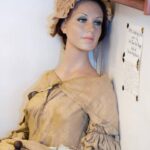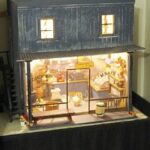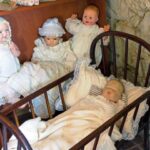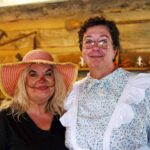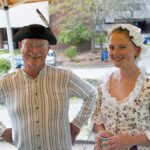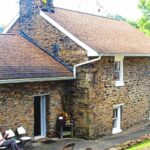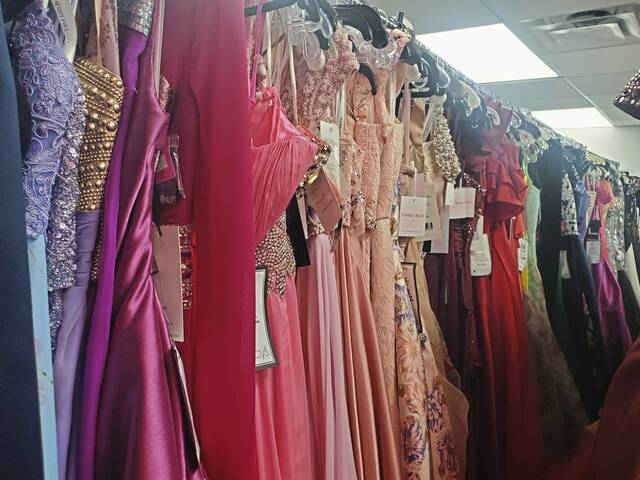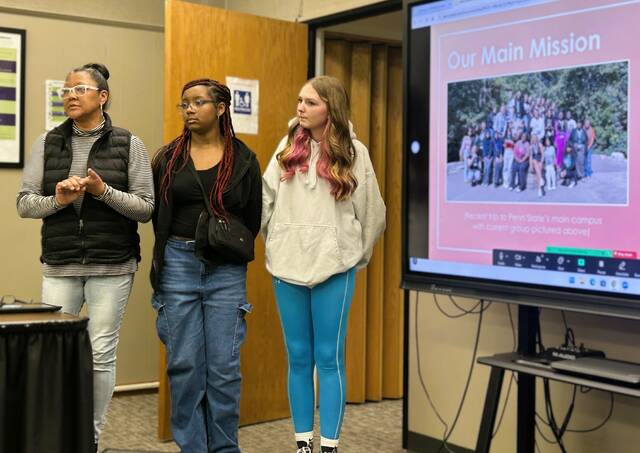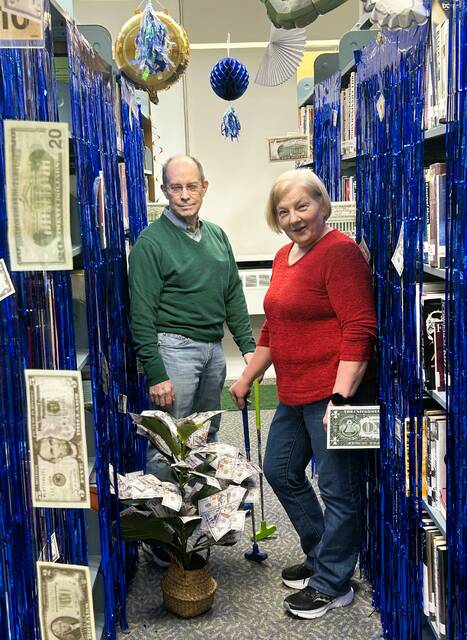Imagine a Monroeville with farms, farms and more farms, as opposed to the trappings of a bustling suburban near-metropolis.
A visit to the Monroeville Historical Society’s annual Heritage Day Festival provided guests with a pretty good idea of what life was like a century or two ago.
Dubbed “A Tribute to Monroeville’s Rural Past,” the Sept. 30 event featured plenty of folks dressed in period attire engaged in activities such as demonstrating how to spin yarn, discussing the tanning of hides and describing various commonly used implements of the 1700s.
The venue was appropriate: Off Haymaker Road and behind Forbes Hospital is a rustic enclave accommodating the McGinley and McCully Historical Houses, restored to bear close resemblance to their early 19th-century origins in what then was Patton Township.
Serving as the houses’ curator is Denise Leithauser, a historical society member who was glad to show Heritage Day visitors the wealth of artifacts, documents and collections displayed inside of each building.
Although she lives in Kennedy Township, Leithauser is fine with driving through tunnels and over bridges to and from Monroeville.
“I do have a hike, but I enjoy it. When you put your heart into something, it makes it worthy,” she said. “There are times I’m in these houses until 1 in the morning, because I’m redoing everything.”
She and Tracy George, who jointly chair the society’s tours committee, work on optimal ways to showcase what the houses have to offer, complete with accompanying information.]
Black was the old white
Among the abundance of examples is a McGinley House photograph that, as guests can read, depicts four generations of a family for whom a well-traveled local road is named: Ann Jane Boggs Beatty (1815-1909), Robert Henry Beatty (1844-1916), Stewart Beatty (1979-1962) and William T. Beatty (1906-1984).
Nearby is Ann’s wedding gown, from 1840. Across the room is a similar garment, worn by Margaret Bing in 1815 when she married Joel Monroe, the man for whom Monroeville is named. And Margaret’s gown is black, because the tradition of wearing white originated decades later with Queen Victoria’s marriage to Prince Albert.
Many of the family-oriented items on display were willed the historical society by Rebecca Gillis Sooy, the Monroes’ great-great-great-granddaughter, who died in 2006.
Another donation came from the estate of Diana Caplan, a gift-shop owner who kept a workshop in her home devoted to her hobby, creating miniature buildings with tiny figures of people and assorted accoutrements. Her collection has a room to itself in the McGinley House.
Some of the items now on display were in the building all along.
“The bathroom here on the second floor of the McGinley House was full of filing cabinets. Everything was shoved in there,” Leithauser said. “I found birth certificates, death certificates, wedding certificates.”
One of her favorite finds was Lenora May Beatty’s 1913 diploma, which Leithauser promptly framed and hung on a wall.
“For a woman to graduate from high school back then was not common, at all,” she said.
‘Brought here piece by piece’
As for the McCully House, a writeup inside the front entrance chronicles the building as originally standing at what eventually had the address of 106 Queen Drive, near the Monroeville Mall.
“People were taking down their home, and they found this log cabin in the walls,” Leithauser said. “This was brought here piece by piece. It’s actually one of the eight surviving log structures in Monroeville today.”
By contrast, the McGinley House was built in the mid-1800s with 14-inch-thick stone walls and “was known to locals as a mansion; most homes during that time did not have two stories,” according to a 2017 Tribune-Review article. “In 1967, Westinghouse Electric Corp. bought the land for its proposed Nuclear Research Center, and (Monroeville) council member James Mirro stepped in to prevent demolition of the house.”
https://archive.triblive.com/local/monroeville/historic-monroeville-houses-getting-some-tlc/
The historical society restored the home and opened it as a museum in 1976 as part of the U.S Bicentennial celebrations.
For 2024, a couple of new events are planned for the historical houses:
• Summer tours for “paranormal thrill seekers,” according to an informational poster at the McGinley House, plus “true-life stories of hauntings, told by seasoned paranormal investigators.” Contact Leithauser at lilygardenlady@comcast.net for further details as they’re formulated.
• Coming in the fall of 2024: Twilight Candle Tour and Mystery Tales, in October on a date to be determined.
“Everything is going to be in the dark except for candles, but they’ll be battery-operated,” Leithauser said. She is working on the tales to be told, with some added effects:
“When our guests come through each house, the story that is read to them, we’re going to have an actor in the background.”
And everyone can enjoy free apple cider, just like in the days when agrarian pursuits dominated the future Monroeville.
For more information about the Monroeville Historical Society, visit www.monroevillehistorical.org.


